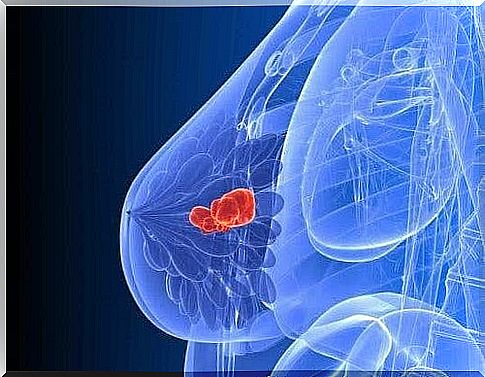The Genes BRCA1 And BRCA2 And Breast Cancer

The genes BRCA1 and BRCA2 are a pair of human genes that produce certain proteins and their function is to try to suppress the growth of the tumor.
The proteins encoded by these two genes help repair damaged DNA. They even have the role of ensuring the stability of each cell’s genetic material.
Like all genetic material, the genes BRCA1 and BRCA2 can undergo a series of mutations or changes. So the structure can change and become inactive. When this happens, they can no longer code for the protein, which can synthesize and repair the DNA.
As a result, the cells are more likely to undergo the kind of genetic changes that can lead to cancer. In particular, the mutations of these genes increase the risk of breast and ovarian cancer.
The genes BRCA1 and BRCA2 – triple negative breast cancer
Triple negative breast cancer is a form of breast cancer that does not have any of the receptors usually present in this disease. Thus, there is no overexpression of the progesterone receptors, estrogen receptors or HER-2. This type of cancer currently has one of the worst prognosis, as chemotherapy is the only therapeutic measure.
Triple negative breast cancer is responsible for about 12-17% of all breast cancer cases. It spreads quickly and has a great ability to generate metastases. This and the difficulty of treating it give it a poor prognosis.
One of the most common molecular events in these tumors is the alteration of BRCA protein function. More than 8% of breast cancer patients with a hereditary BRCA1 mutation have triple negative breast cancer.
In addition, estimates indicate that approximately 15% of patients with ovarian cancer and 5% of patients with breast, pancreatic or prostate cancer have inherited BRCA1 or BRCA2 gene mutations.
The treatment of triple negative cancer with mutation in the genes BRCA1 and BRCA2

In December 2014, the authorities approved the marketing applications for olaparib in monotherapy for the treatment of advanced ovarian cancer with mutations in these genes.
From these results, researchers analyzed the efficacy of this drug for treating advanced breast cancer in previously treated patients with mutations in the BRCA1 and BRCA2 genes.
When applying the maximum tolerated dose of olaparib (400 milligrams every 12 hours, in capsules), scientists then saw an objective response of 54% in patients with triple negative breast cancer. So what this hopefully means is that 7 out of 13 patients had a good response.
Other changes that affect the BRCA protein

Researchers continue to study the genetic component of breast cancer. It will hopefully open the door to new treatments. In addition to the mutations of the genes mentioned above, there are other changes that may be responsible for the abnormal function of the BRCA protein. One is the methylation in these genes.
So this means that the promoter of these genes gets a methyl chemical group, CH3-. The promoter of a gene is a region of DNA that controls the initiation of transcription of a particular part. In clearer terms, it is the part of the DNA that initiates the production of a type of protein via RNA.
Thus, due to their methylation, these genes cannot synthesize the protein responsible for suppressing the growth of a tumor. Researchers observed methylation of the BRCA1 and BRCA2 gene promoter in several malignancies:
- 5-20% in ovarian cancer
- 50% in stomach cancer
- 29-59% in breast cancer
Conclusion
The genes BRCA1 and BRCA2 play an important role in breast oncology. A high percentage of breast cancer patients with changes in these genes have a triple negative form.
They develop tumors whether it is due to a mutation or methylation. Unfortunately, their prognosis is worse, as available treatments are still limited.
So it is very important to continue research in order to develop new therapeutic options. So is making progress in curing this disease. The genetic aspect of breast cancer is a hopeful area for further research, but much remains to be done.








